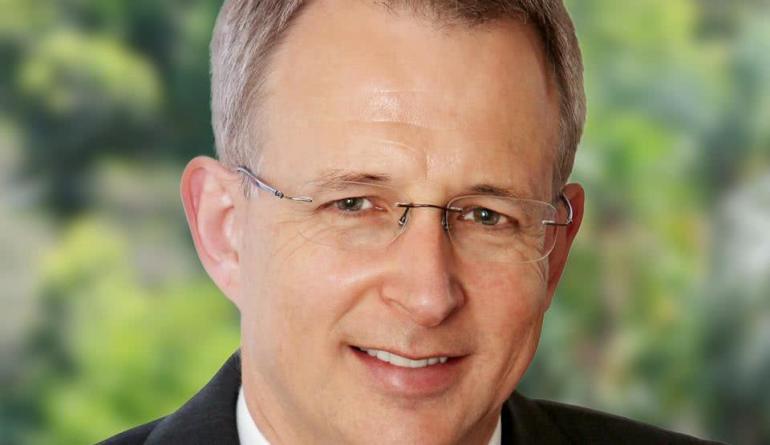Paul Fletcher.
Paul Fletcher acknowledges the urgency of resolving the COVID-19 insurance risk issue for screen productions and other sectors, and promises to formulate the Federal Government’s media reforms as quickly as possible after the consultation period.
In a wide-ranging interview with IF, the Minister for Communications, Cyber Safety and the Arts also re-iterated the temporary suspension of the commercial broadcasters’ local content quotas was implemented solely due to the production shutdown, which meant the networks could not fulfill their 2020 obligations.
While he is unwilling to preempt his decision on whether or not to continue the suspension next year, he indicated the state of the TV advertising market would not be a factor.
The Minister has begun a series of roundtables as part of the consultation process following the release of the Screen Australia/ACMA options paper, which sets out four potential models for how local screen content could be regulated and incentivised towards the goal of a platform-neutral media framework.
“We want to update our regulatory framework so we continue to have Australian stories on screen, which is enormously important culturally and economically, so that we are the home of a vigorous and active film and television production sector,” he said.
“We need to recognise the subscription video-on-demand players are growing very rapidly and in turn that there is an opportunity to sell more Australian content to global streaming platforms.”
Fletcher stressed the options paper should not be viewed as a choice between the four models but rather as a means to spark discussion and debate about such issues as whether local content obligations should be measured in hours or points or dollar spend.
In a possible clue to the government’s intentions, he noted the French and German governments plan to require Netflix, Amazon and other platforms to invest a percentage of their revenues on local content while a broadcasting and telecommunications review commissioned by the Canadian government recommended local content spending obligations on all media curators.
Asked about a timetable for finalising the media reforms, he said: “I recognise the sector needs certainty. We will move forward as quickly as we can once we have responses from the consultation process, we weigh up those and then get our design work done on what the scheme looks like.
“We will want to make sure there is a degree of interaction in doing that with further consultation.”
Some measures would require legislative changes while others could be implemented via regulation.
CJZ MD Nick Murray and See-Saw Films’ Emile Sherman sent the Minister a detailed submission calling on the Federal Government to underwrite the risk of productions having to shut down or replace the director or key cast due to the coronavirus pandemic.
Fletcher has asked his department for advice on the problem and will feed that into the government-wide consideration on the COVID-19 insurance risk, which affects multiple sectors.
“We are certainly aware of the insurance issue as we think about the path back for film and television production,” he says.
“The government is also very alive to the need to bring back back talent from overseas, which sits with the Ministers for Home Affairs and Immigration. We have to balance up health considerations with economic considerations and that’s a process we’re going through across a whole range of sectors.”
‘Neighbours’ practicing safe distancing.
Fletcher welcomed the safety protocols which have enabled Neighbours to resume filming and MasterChef to continue, and the health and safety guidelines that are being prepared by the Australian Film, Television and Radio School, Screen Australia, state agencies and the production sector in collaboration with the Chief Medical Officer.
“The government has made clear there will be a staged reopening of the community, and this extends to restarting productions locally and bringing in cast and crew from overseas to resume productions that were postponed,” he said.
“There are very encouraging early signs of the local production sector’s return and recovery; however the exact timings will be informed by the advice of the Chief Medical Officer as the community’s health remains paramount.”
Noni Hazlehurst is among many screen industry figures who have criticised the JobKeeper wage subsidy for excluding many thousands of freelancers.
“More than 90 per cent of our artists, creators and associated businesses are not in receipt of public funding and are ineligible for relief measures,” she said last week.
“Leaving our creative industry and its workers to founder makes absolutely no sense, culturally, emotionally or economically.”
Fletcher responded: “For people to lose their jobs or contract employment at very short notice is extremely distressing for individuals and very challenging for the whole nation.
“Depending on your circumstances, on JobSeeker you can end up receiving more money than on JobKeeper if you are eligible for Commonwealth rental assistance or Family Tax Benefit Part A or B.”
Asked about the benchmark for deciding later this year whether or not to extend the suspension of the networks’ local content quotas next year, he said: “It did not make sense to have a regulatory obligation on the free-to-air broadcasters which they could not meet when film and TV production had essentially ceased.
“The key factor is going to be to what extent has production started up again. Are the broadcasters going to be in a position where they can go to the market and buy what they need to buy to meet the sub-quotas?”
Check back tomorrow for the Minister’s comments on the mandatory code requiring the Internet giants to pay Australian media for using their news content; ABC funding; and the screen classification review.



